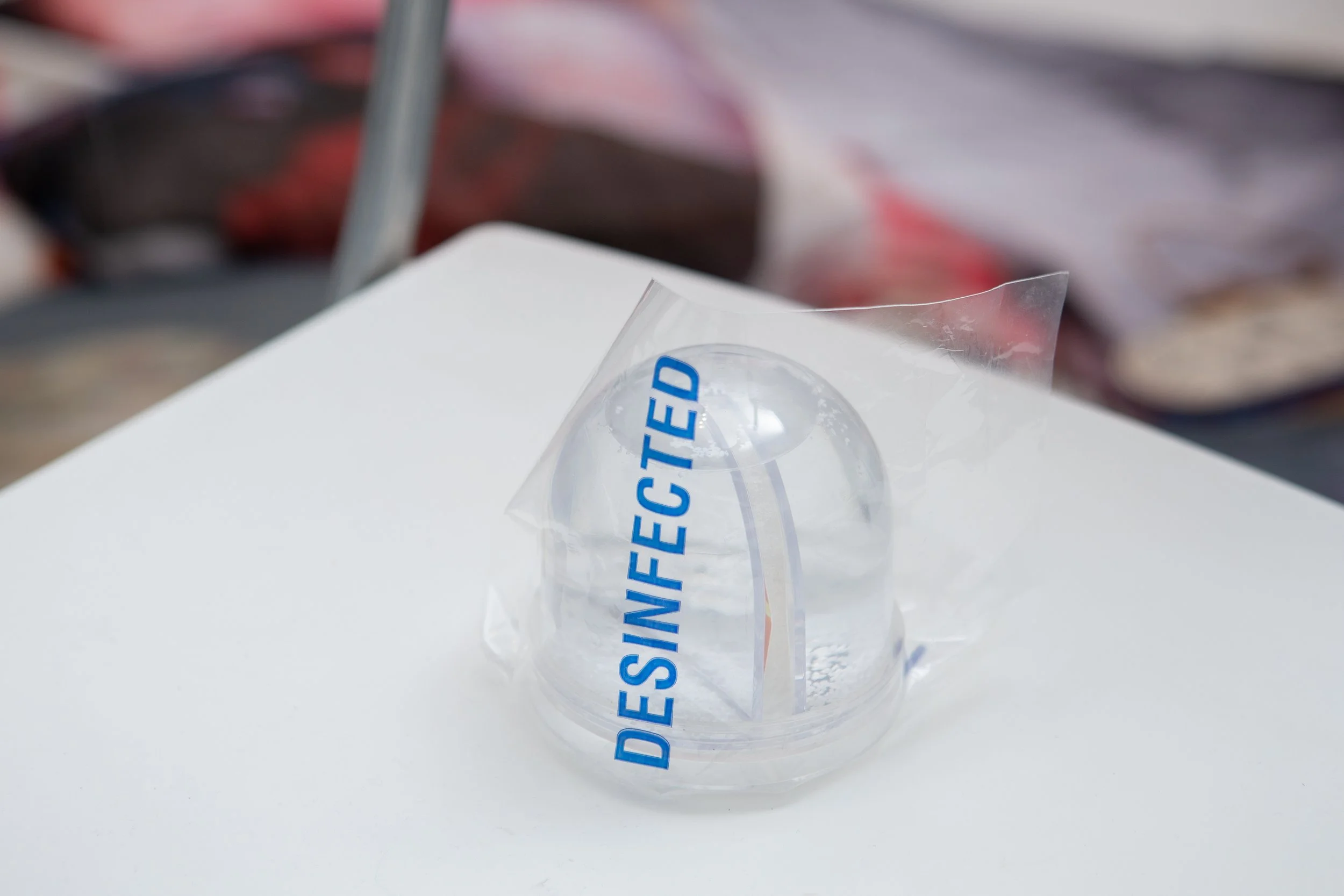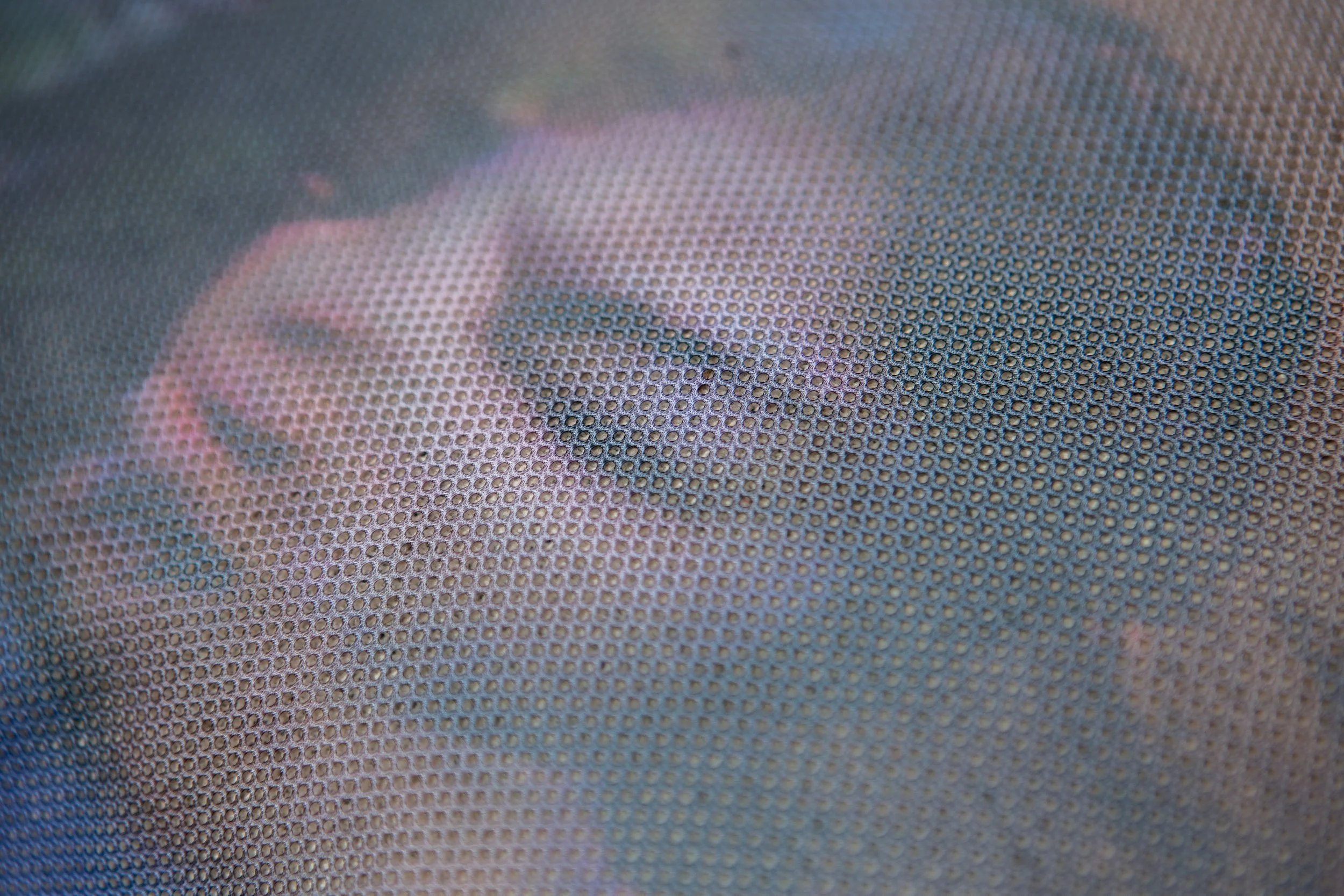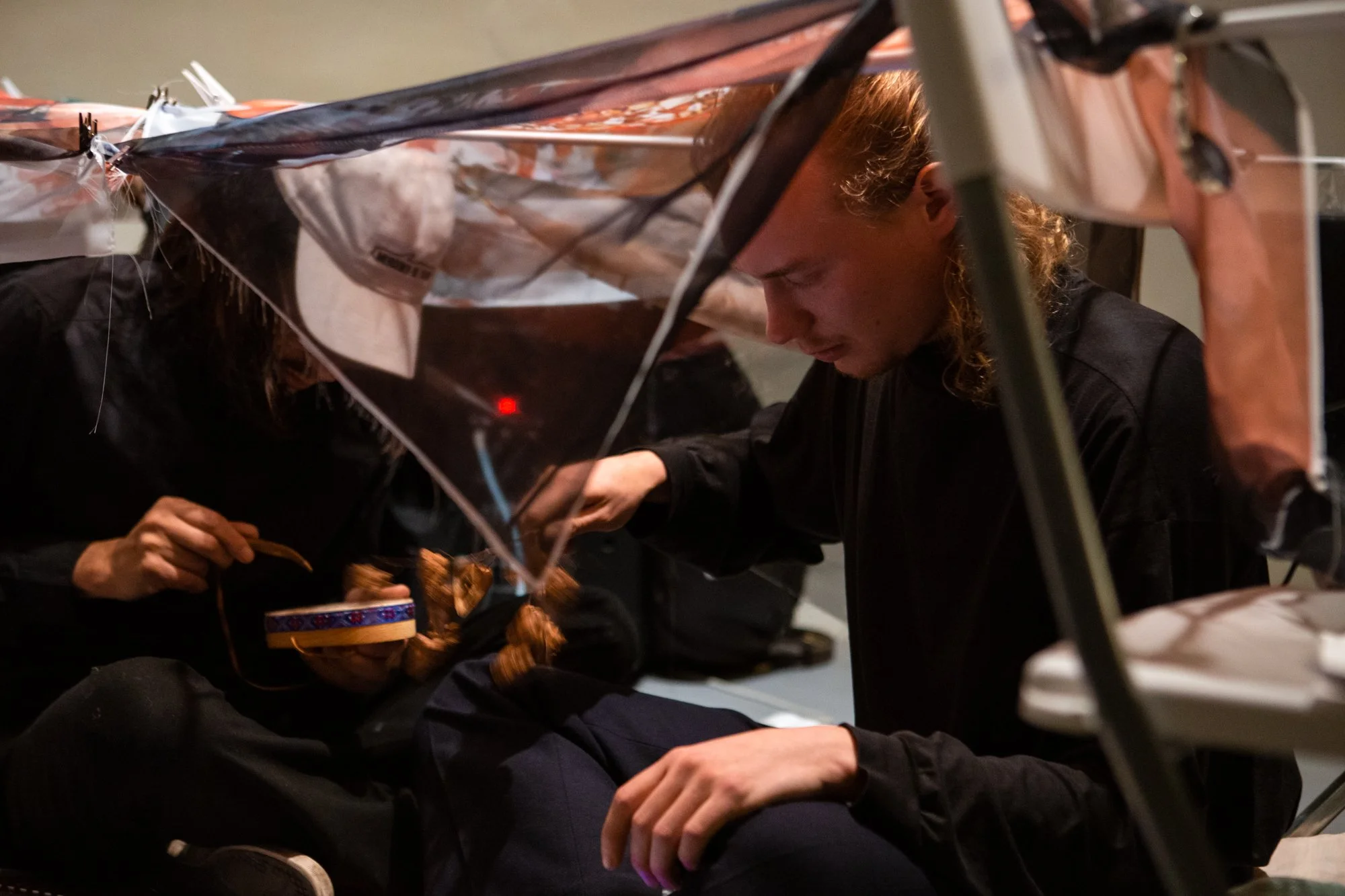pince
fortress study: from my horse notebook (solo exhibition) @ PINCE, Budapest (HU)
18.10-4.11.2022
Curator: Anna Zsoldos
Opening performance: Cesar Isaac and Ville Sirviö
Graphics: Dániel Kophelyi
Photos: Mátyás Gyuricza
“His beloved horse notebook was full of sudden sentences. The notebook is lost, but no effort is seemingly done to find it. Because of course, he remembers everything. The notebook was randomly used for his abstract thoughts, which eventually lead to something psychical.”
~ Anna Zsoldos
The uncanny images used to realize the fortress are not essentially meant to replicate nature, but to loosely cherish certain signifiers of nature. However, as artificial intelligence cannot experience time and space as we are traditionally supposed to, the images should not be interpreted in the foundational sense of sense. The clichéic consumer AI-tool today uses text to produce something – however, we do the same as we define everything with language. The entity described as reality is obviously influenced by our subjective thought, stubbornly examined by phenomenologists — reality is traditionally experienced through vision, but one’s inner visions should not mix up with what we are supposed to see. We are taught to maintain a defined sense of space and time, to be as functional as possible in the moments of value. If the performance of an individual contradicts with the mass-produced sense of the real, the gaze finds itself in an unbearable state of being — the social equilibrium becomes endangered.
The contents of the purportedly lost notebook with a cover image of a wild horse adjucated the socio-historical qualities of the t(/quad)rivium, that famously promote a certain kind of (privileged) freedom and value.
‘fortress study’ does not give the viewer a context that would clearly explain the signifiers present in the images -- however, their uncanny qualities attempt to create correlations and questions of the axiomatized real. The imagery presented on both soft and hard sufraces are based on real events of one’s personal compass of spacetime, (dis)oriented by memory and the virtual — being at the same time open for the real, physical interrelations of the gaze.
The spatial installation consists of various inner microcosms inside a microcosm, built inside a classified, (micro)cosmic bubble of art; the construction appears as a safe space, which kids often build in their homes out of everyday materials. However, as the major mental layer of these microcosms is the artistic gaze that intrisically saunters in cubical, white surroundings, the meaning of the structure (should) become(s) questionable. The form of the fortress is universal, a(n educative) part of the ((temporarily) comfortable and desired,) seemingly leisurable structures of the society. Recently also IKEA released a collection of semi-readymade fortresses for the still fledgling consumers, not yet ready to bloom in the evergreen garden of the beau monde 🤡
AI has very rapidly become accessible to everyone and a consumer tool in everything imaginable — the fortress is as well entirely constructed of(/by) consumer products. The installation is overwhelmed by objects, which might have an everyday function, but do not form direct personal connections with their viewers/users. The images might trigger an uncomfortable feeling of the uncanny, which according to Freud implied something unhomely — simultaneously the physical structure formed by the unhomely objects provides a sensation of safety(/rooting to something pre-eminenced) 🤡
These fluid castles are primarily virtual constructions, instinctive attempts to experience (pristine) feelings of leisure and nondependence. In contrast, in the space of PINCE, these feelings are constructed according to mass-producted assembly manuals and (im)personal objects. Elementarily such fortresses are (semi-)serious ventures to provide a temporary break from the Ready-To-Eat real, the gaze and certain authority — luring us towards the immature lounge of the unreal — which can, as well, be (as pointed above,) made a well-commerciable, fruitful doctrine(s) of the IKEAlly well-glazed welfare states 🤡
˙pǝpuǝʇʇɐun uǝɹpןı̣ɥɔ ǝʌɐǝן ʇou oꓷ









